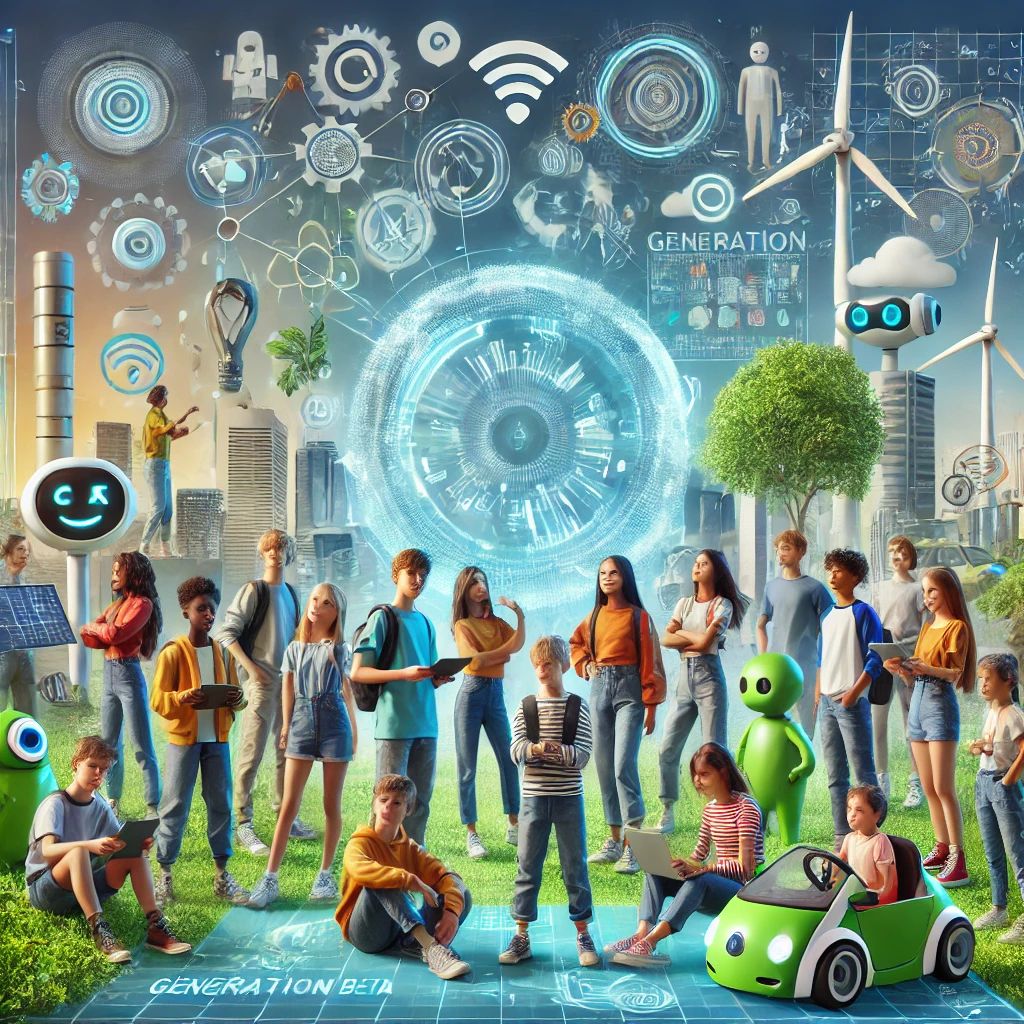Generation Beta refers to the children born between 2025 and 2039, who will be raised in an era where technology and innovation are integral to everyday life. They will experience a world filled with groundbreaking technologies such as artificial intelligence (AI), self-driving cars, virtual reality, and other advanced tools that are expected to become commonplace. This group will likely make up about 16% of the global population by 2035, reflecting their growing role in shaping the future.
Growing up in this environment, Generation Beta will develop a deep familiarity with digital technology. Unlike earlier generations, who witnessed the gradual rise of the internet and mobile devices, these children will be born into a world where technology is already embedded in every aspect of life. AI, smart devices, and automation will be second nature to them, allowing them to navigate a constantly evolving digital landscape with ease.
The traits and behaviors of Generation Beta will be heavily influenced by their tech-filled surroundings. This generation will likely be more tech-savvy and adaptable to new digital tools and platforms, making them comfortable in virtual spaces. Social interactions, education, and entertainment will be increasingly driven by technology, giving them opportunities to connect, learn, and create in entirely new ways. The lines between the physical and digital worlds may blur, making online and offline experiences more interconnected.
As the pace of technological advancement accelerates, Generation Beta will need to develop skills that help them keep up with changes. This may involve a greater focus on creativity, critical thinking, and problem-solving. The ability to work with advanced technologies, including AI, may become essential as they mature and enter the workforce. However, their constant exposure to innovation may also present challenges, such as managing the overwhelming flow of information, dealing with privacy concerns, and addressing the potential impact of technology on mental well-being.
One of the most notable features of Generation Beta will be their ability to push beyond traditional boundaries. Virtual reality and other immersive technologies will give them access to new worlds and experiences, expanding their sense of what is possible. Education, work, and socialization will evolve to be more flexible, allowing them to interact with others across the globe in ways that were once difficult or impossible. This global connectivity will foster a broader worldview and encourage the exchange of ideas across cultures.
In conclusion, Generation Beta will be defined by their relationship with technology. They will grow up in a world of rapid change, where digital tools and innovations shape nearly every aspect of life. While they will face challenges unique to their time, they will also possess the skills and adaptability to thrive in a digital-first world.

